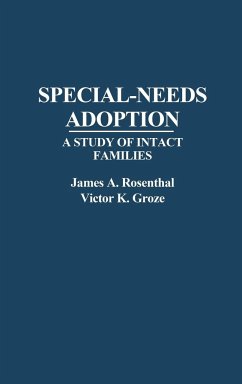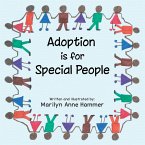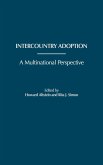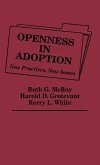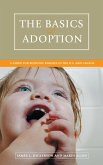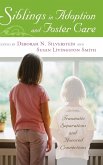This volume reports the results of a large-scale survey of families who adopted children with special needs: older children, minority children, handicapped children, or sibling groups. In contrast to much of the current literature which focuses on adoption disruption, this study shifts the focus of inquiry to intact families. It assesses perceptions of social work services, parent-child relationships, family functioning, child behavior, school performance, and other aspects of adoptive family life. Rosenthal and Groze compare outcomes for different types of adoptions, including adoptions of children of different ages, adoptions by minority families, transracial adoptions, single-parent adoptions, adoptions by less educated and less wealthy families, adoptions by foster parents, adoptions of children with handicaps, and sibling group adoptions. The authors offer solid advice, based on their sample of 800 respondents, regarding various aspects of practice in the field of adoption, including selection of families, preparation of families and children, and useful follow-up services. Special-Needs Adoption is an invaluable tool for agencies developing adoption programs, and practitioners seeking the latest information regarding adoptive family dynamics.
Hinweis: Dieser Artikel kann nur an eine deutsche Lieferadresse ausgeliefert werden.
Hinweis: Dieser Artikel kann nur an eine deutsche Lieferadresse ausgeliefert werden.

